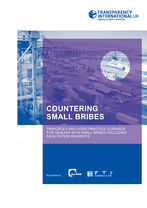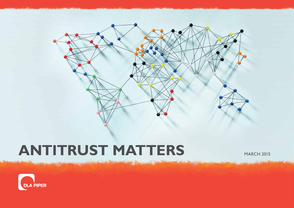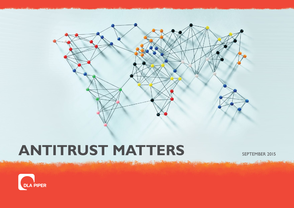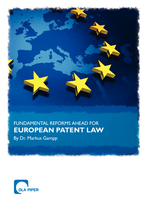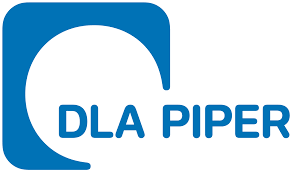Fundamental Reforms Ahead For European Patent Law - An overview of the new system of the European Patent
DLA Piper
Description
enter into force after ratification by at least 13 participating
Member States, which must include Germany, France
and the UK. Until then, a set of procedural rules is
being created, the (currently 18th) draft of which is far
advanced. Furthermore, a couple of questions of practical
implementations must be solved, including selection
and training of judges, the implementation of a unitary
IT‑system and the specification of the court’s fees. Against
this background, the UPC is currently not expected to be
fully operational before 2017.
In the first few years, the new system will come with
considerable legal uncertainty.
Many of the new material and procedural provisions will require interpretation, and the quality of the Local and Regional Divisions scattered all over Europe will initially be hard to assess. It will take some time until reliable lines of case law have been established. In view of the substantially increased significance of these cases, there are interesting times ahead for European patent law – and for all those involved. Dr Markus Gampp, LL.M. Partner, Patent Litigation Munich Т +49 89 23 23 72 261 markus.gampp@dlapiper.com Dr Markus Gampp, a partner in DLA Piper’s Patent Litigation practice, advises and represents clients on contentious legal and arbitration proceedings with a particular focus on patent law and competition matters. Markus heads our German patent practice. www.dlapiper.com DLA Piper is a global law firm operating through various separate and distinct legal entities. Further details of these entities can be found at www.dlapiper.com Copyright © 2014 DLA Piper. All rights reserved. | OCT15 | 3010324 .
Many of the new material and procedural provisions will require interpretation, and the quality of the Local and Regional Divisions scattered all over Europe will initially be hard to assess. It will take some time until reliable lines of case law have been established. In view of the substantially increased significance of these cases, there are interesting times ahead for European patent law – and for all those involved. Dr Markus Gampp, LL.M. Partner, Patent Litigation Munich Т +49 89 23 23 72 261 markus.gampp@dlapiper.com Dr Markus Gampp, a partner in DLA Piper’s Patent Litigation practice, advises and represents clients on contentious legal and arbitration proceedings with a particular focus on patent law and competition matters. Markus heads our German patent practice. www.dlapiper.com DLA Piper is a global law firm operating through various separate and distinct legal entities. Further details of these entities can be found at www.dlapiper.com Copyright © 2014 DLA Piper. All rights reserved. | OCT15 | 3010324 .


